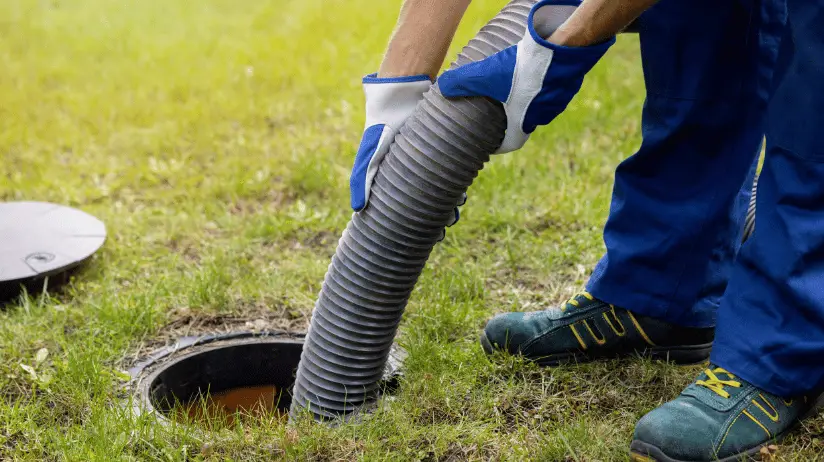Many homes in the Treasure Valley rely on septic tanks instead of city sewage lines for wastewater management. A well-maintained septic system is crucial for the proper functioning of your home. However, even with regular maintenance, septic systems can eventually reach their lifespan or experience issues that require an upgrade.
Here are some key signs that it may be time to invest in a new septic system:
Factors Affecting the Lifespan of Your Septic System
A septic system generally lasts from 20–30 years depending on the following factors:
- Material: Septic tanks are made from concrete, fiberglass, or steel. Concrete septic tanks last the longest.
- Soil type: Highly acidic soil can degrade a septic tank, shortening its lifespan.
- Tree roots: Tree roots can grow into pipes, tanks, and drain fields, obstructing wastewater flow and infrastructure.
- Proper maintenance: Homeowners must have their septic tanks pumped every few years to remove waste and toilet paper. If a tank isn’t emptied regularly, it will not work properly.
- Usage: The amount of wastewater and frequency of use directly impact the tank’s lifespan. Homeowners should choose a tank size appropriate for their levels of usage. Additionally, avoid putting wet wipes, food scraps, oils, fats, and grease into your system because they can cause blockages.
- Installation: If a new septic tank is installed properly, the risk of common septic tank problems decreases.
- Age: If your system is nearing or exceeding its expected lifespan, it’s likely time for an upgrade to ensure performance.
Even when a system is installed properly and maintained, it will break down over time. That’s why homeowners must be aware of the signs of septic tank failure.
7 Signs of Septic System Failure
Septic system failure happens when the system is no longer able to treat and dispose of wastewater properly. So, wastewater ends up where it shouldn’t. Below are some septic system problems you may see as your system fails.
1. Frequent Backups
When a septic tank is overloaded, it cannot collect more wastewater and sewage. As a result, wastewater and sewage flow back into the home, spilling from drains and toilets.
Wastewater doesn’t have to flow back into your home to indicate a backup. Frequently clogged toilets indicate that the septic system cannot properly dispose of sewage, causing blockages. Blockages are one of the most common signs that a septic system is failing.
2. Slow Drains
Slow drains can also indicate that your septic system is nearing the end of its life. If sinks, toilets, and showers drain inefficiently, your septic system may have a partial blockage. Luckily, professionals can likely resolve using specialized tools.
However, slow-flowing drains could also be a sign of something more dire. If the system becomes overloaded or the drain field cannot absorb wastewater, there is less room for water to flow. In this case, a sluggish drain is an early sign of a septic tank issue and leads to full blockages and backups if not addressed.
3. Gurgling Sounds from the Pipes
Every toilet will make a sound when flushed; however, it should never gurgle. A gurgling sound usually means air is trapped in the pipes, which occurs when wastewater isn’t flowing properly. This could be due to a clog, a full septic tank, or even a problem with the venting system. The gurgling noise signals that air is being forced through the pipes, leading to slow drains, backups, or other septic issues.
4. Excess Water Near Your Septic Tank
Puddles or standing surface water near your septic tank or drain field are never a good sign. Standing water indicates that your system is not functioning properly; there may be a blockage or failure in the drain field. If the drain field cannot absorb or filter wastewater, nearby water can become contaminated, potentially causing a health hazard.
5. Unpleasant Odors
A well-maintained septic system should operate odorlessly. If you’re noticing foul odors, especially near your septic tank or drain field, it’s a clear sign of a problem. These odors can be caused by a variety of issues:
- Full septic tank
- Clogged drain field
- Malfunctioning septic system component
Occasional odors, especially after pumping the septic tank, can be normal. However, persistent odors are usually a red flag.
6. Green Patches of Grass
Grass may become unusually green around a failing septic system because excess wastewater, including nutrients like nitrogen and phosphorus, leaks into the drain field. This acts as fertilizer for the grass, causing it to grow thicker and greener than surrounding areas.
While it may seem like a benefit, it’s a sign that the drain field is oversaturated and the system is failing to treat the wastewater. This can lead to more serious long-term problems, including contamination of groundwater and other areas of the yard.
7. Contaminated Well Water
Many homes in the Treasure Valley have their own wells, especially in unincorporated Ada County. Sewage from a failing septic system may contaminate well water, changing the taste, odor, or appearance of the water.
If a drain field cannot filter harmful bacteria from wastewater, it can leach into nearby groundwater or surface waters, including drinking water wells. Ultimately, well water can become unsafe to drink. Drinking water tests may reveal high levels of coliform bacteria or nitrates.
Replacing Your Septic System
If you suspect your septic system is failing, it’s important to act quickly. Contact a licensed septic professional, like Pleasant View, to inspect your system and identify any issues. We can determine whether your system needs repairs, pumping, or a full replacement. We can help you implement the right solution to restore your system’s functionality.
Upgrading your septic system before it fails can improve the functionality of your home and enhance its value. Plus, a new tank could protect your property from potential environmental damage. If you are considering replacing or upgrading your system, we’re here to help. Reach out to our team today for a free quote on a new septic system.



